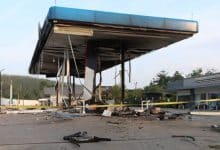Thailand’s 34 billion baht railway plan to boost trade and tourism

The State Railway of Thailand (SRT) is pushing for an 80-million-baht budget to conduct a feasibility study for a new double-track railway linking Hat Yai in Songkhla to Sungai Kolok in Narathiwat.
The massive 34.59 billion baht project aligns with Prime Minister Paetongtarn Shinawatra’s policy to enhance railway efficiency, improve connectivity between Thailand and neighbouring countries, and stimulate border trade, tourism, and economic development in the southern provinces.
Deputy Prime Minister and Transport Minister Suriya Jungrungreangkit stated that the feasibility study will take about one year, wrapping up in 2026. The project will then move into the design phase (2026 to 2027), followed by an environmental impact assessment (EIA) from 2027 to 2028. If approved, construction is set to begin in 2029, with the railway expected to launch in 2034.
Spanning 216 kilometres, the line will include 27 stations, eight train stops, and two freight yards, strengthening Thailand-Malaysia connectivity by linking Bangkok to Sungai Kolok on the Thai-Malaysian border.
Suriya noted that while Thailand’s railway bridge has been upgraded for operations, the Malaysian segment from Rantau Panjang to Pasir Mas has remained out of service since 2005.
Beyond this project, six other double-track railway projects worth 280 billion baht are awaiting approval from the National Economic and Social Development Council before heading to the Cabinet, reported Bangkok Post.
In similar news, the SRT is set to modernise its ageing fleet by procuring 184 air-conditioned diesel railcars for 24.1 billion baht. These new railcars will replace decades-old trains and support the expansion of double-track rail services.
SRT chief Veeris Ammarapala stated that the upgraded fleet will replace 10 long-distance trains, aiming to boost passenger numbers by offering a more efficient and environmentally friendly alternative to road transport. Benefits include lower fuel consumption, reduced traffic congestion, and a smaller environmental footprint.
In 2023, SRT saw 30.3 million passengers, up from 27.8 million the previous year.
Half of the budget will fund 92 air-conditioned railcars with driver’s cabins, while the rest will be spent on 92 without cabins. The new railcars will run on both diesel and electric battery power, marking a step towards sustainable rail transport in Thailand.
Latest Thailand News
Follow The Thaiger on Google News:


























